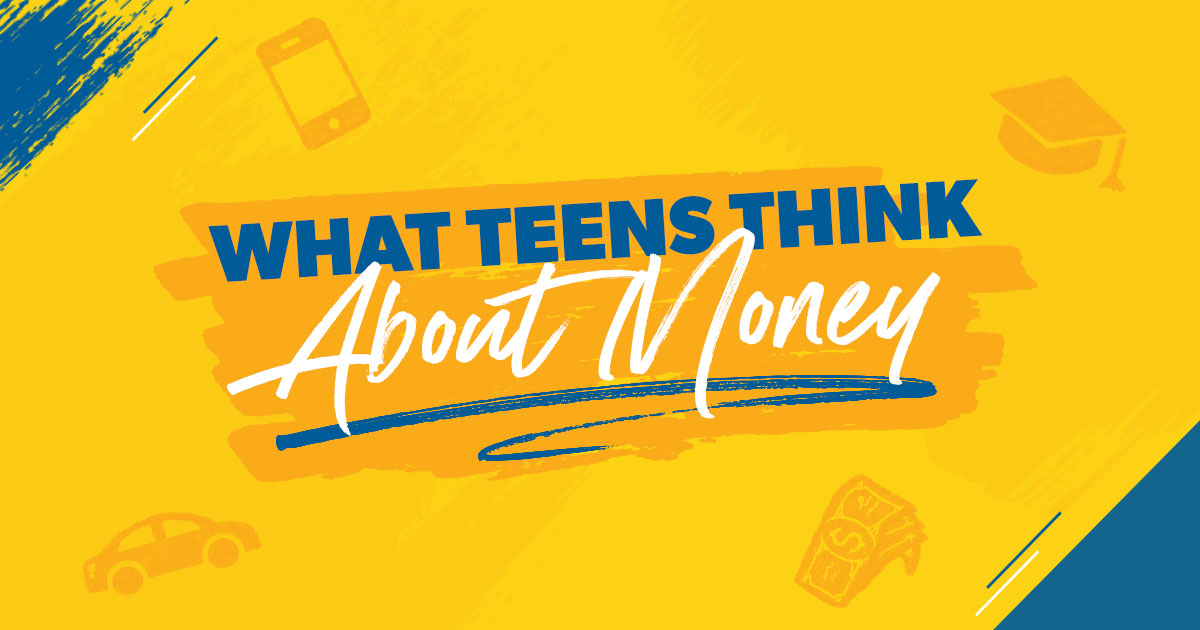We Asked 76,000 Students Some Big Money Questions. Here’s What They Said.
4 Min Read | Sep 28, 2021

Teens who completed a personal finance class in high school would rather put $500 in the bank than buy a smartphone.
You read that right. With personal finance education under their belts, students are three times as likely to choose saving money over buying a cell phone! In an age of texting, Snapchatting and Instagramming—that’s kind of a miracle.
Teens who completed a personal finance class in high school would rather put $500 in the bank than buy a smartphone.
Earlier this year, our team surveyed more than 76,000 high school students from across the nation to learn how teens think and feel about money. The results were pretty remarkable.
Here’s what we discovered about high schoolers who completed a personal finance class before graduation:
- They better understand the pitfalls of student loans: 94% of them know how student loans work (aka they know they have to pay them back—with interest!).
- They’re thinking about ways other than student loans to pay for college: Students said their top college funding sources include scholarships (69%), help from their parents (53%) and personal funding/themselves (51%).
- They’re earning more than you think: Nearly two-thirds of students said they are working and earning an average of $3,000 per year.
- They’re confident about handling their money: Students report feeling confident when it comes to budgeting (95%), investing (87%) and saving money (94%).
The Student Loan Dilemma
So what about the students who didn’t take a personal finance class? The study found they were twice as likely to say they didn’t understand how student loans work. Can you imagine signing up for decades of interest payments before you’re even old enough to rent a car? Maybe you can. Maybe you did.
Can you imagine signing up for decades of interest payments before you’re even old enough to rent a car?
That’s what we want to see change.
"We’re seeing recent college graduates enter the workforce with an average of $37,000 in student loan debt," says Anthony ONeal, Ramsey Solutions youth and money expert. "Instead of having the freedom to choose where they’re going to live or the job of their dreams, this debt limits their choices and prevents them from taking the next step in their lives."
Considering our nation is in the middle of a student loan crisis to the tune of $1.3 trillion, it’s encouraging to hear from informed teens who won’t be adding to that number. Now we want every student in America to experience this freedom!
The Role of Teachers and Parents
Here’s the great news: Today’s teachers have the power to help students begin their lives ahead of the curve, instead of behind it.
"Our educators have an important job preparing our high school students for the future," ONeal says. "Whether kids go on to college or enter the workforce right away, they will all need to learn how to manage their money."
Currently, only five states require their students to take a standalone personal finance course before graduation. But there’s no need to wait for state legislation to create new requirements! Change starts with willing educators who are ready to impact and empower a generation to win with money right now.
"If we give students the chance to learn these skills early in a safe environment like the classroom, we also give them the opportunity to avoid the mistakes many of us have made and set out on a path to a brighter, more secure financial future," ONeal says.
Are you a teacher? Help your students win with money today!
Parents are an important part of the equation too. They can get involved by writing state legislators and encouraging them to implement or expand the personal finance requirements in their state. Moms and dads can also make a point to teach money skills at home, where lifelong learning truly begins.
Let’s teach our students how to succeed academically and financially. Because if they can choose savings over smartphones as teens, just imagine all the smart money decisions they’ll be equipped to make as adults.
Let’s teach our students how to succeed academically and financially.
Check out our full report on the survey findings, Students and Money: How Learning Leads to Confidence and Action in America’s Teens. Funding for this report was provided by Find Your Calling.

